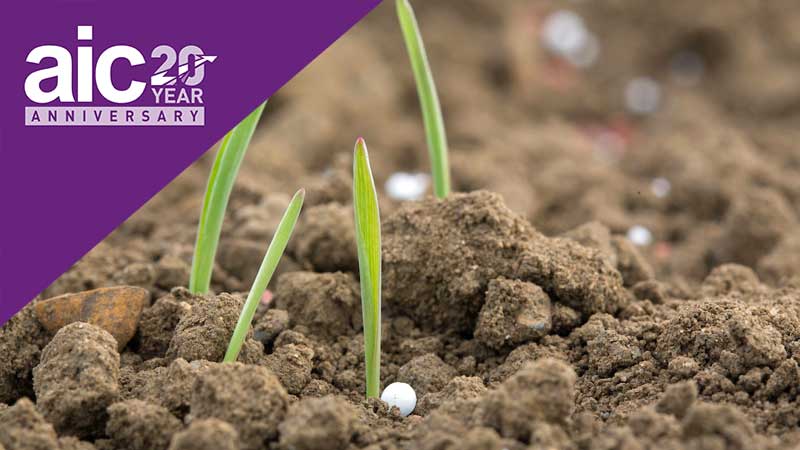AIC at 20: Promoting the vital role of fertilisers in food production

As AIC marks 20 years as the UK agri-supply industry’s leading trade association, we're looking back at some of its greatest achievements since it was founded in 2003.
Each week throughout 2023, we’ll explore a major achievement where AIC represented its Member businesses, promoted the benefits of modern commercial agriculture in the UK, and supported collaboration throughout the food chain.
For Global Fertiliser Day (13 October), we look at the key role of fertilisers in food production and consider the work of the Agricultural Industries Confederation (AIC) in support of modern, sustainable, commercial agriculture.
Feeding the world
Global Fertiliser Day recognises the indispensable role that fertilisers play in sustaining our world's food supply.
Fertilisers are a cornerstone of modern agriculture, driving increased crop yields and ensuring food security for billions of people worldwide.
In the UK, the AIC is the trade association body for the fertiliser sector, championing its significance and promoting sustainable practices.
Fertilisers are crucial for agriculture because they provide essential nutrients that plants need to grow and thrive. These nutrients include nitrogen, phosphorus, and potassium, often referred to as NPK, in addition to various micronutrients.
As soil fertility naturally depletes over time due to continuous farming, fertilisers replenish these vital nutrients, enabling crops and pastureland to reach their full potential.
Food security
One of the primary benefits of fertilisers is their ability to boost crop yields. Increased yields are essential to meet the ever-growing global demand for food as the world's population continues to expand.
Without fertilisers, it would be incredibly challenging to meet the world's food demands and ensure food security.
AIC advocates for sustainable and responsible fertiliser use, aligning its efforts with national and global initiatives to ensure that fertilisers are used efficiently, minimising environmental impacts such as nutrient runoff into waterways.
Sustainable fertiliser practices are critical in reducing greenhouse gas emissions and protecting ecosystems while maximising crop productivity.
AIC promotes innovation within the UK fertiliser industry, supporting research and development efforts aimed at creating more efficient and environmentally friendly fertilisers.
This commitment to innovation helps reduce the carbon footprint associated with fertiliser production and application, and the sector is continually innovating to decarbonise its manufacturing processes.
New products, such as green ammonia-based nitrogen fertilisers and other low-carbon footprint minerals, are also in development.
Watch the video below to find out more about AIC and the fertiliser sector.
Make sure you're following AIC on X and LinkedIn for regular updates.
Visit the AIC at 20 webpage for more content like this.



